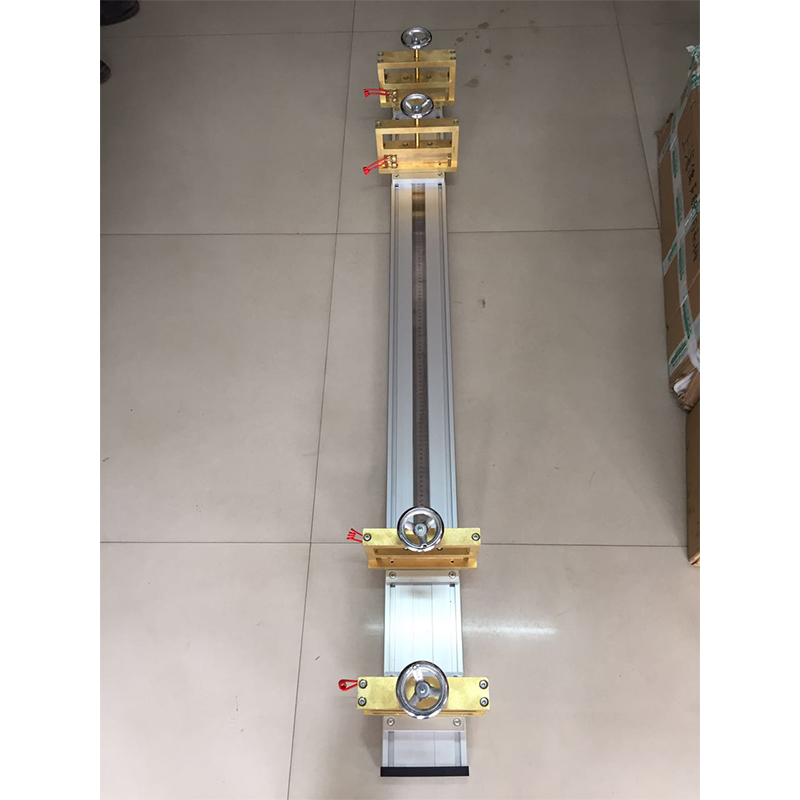Manufacturers of Manual Tensile Testing Machines for Accurate Material Strength Evaluation and Quality Control
Understanding Manual Tensile Tester Machines and Their Manufacturing
In the realm of materials testing, one of the most essential tools is the tensile tester. A manual tensile tester machine is designed to evaluate the tensile strength of various materials, providing crucial data that informs manufacturing processes, quality control, and product development. This article delves into the significance of manual tensile testers, highlights their manufacturing process, and discusses the factories involved in their production.
What is a Manual Tensile Tester?
A manual tensile tester is a device used to measure the force required to pull or stretch a material to the point of failure. This machine typically consists of a frame, crosshead, load cell, grips for holding the sample, and a measurement system that records the force and elongation of the specimen. The primary purpose of this tester is to determine the tensile strength, yield point, and elongation characteristics of materials such as metals, plastics, rubber, and textiles.
These machines are crucial for a variety of industries, including construction, aerospace, automotive, and manufacturing. By understanding the tensile properties of their materials, engineers can ensure that products will perform as expected under real-world conditions and comply with relevant standards and regulations.
Manufacturing Process of Manual Tensile Testers
The manufacturing of manual tensile testers involves several critical steps, each contributing to the accuracy and reliability of the equipment. It begins with the design phase, where engineers utilize computer-aided design (CAD) software to create precise models of the machine. These designs must consider factors such as material properties, expected load limits, and user accessibility.
Once the design is finalized, the next step is selecting high-quality materials that can withstand repeated stress. Commonly used materials include high-strength steel for the frame and aluminum for lighter components. After sourcing these materials, the manufacturing process continues with cutting, machining, and assembling the components. Advanced technologies like laser cutting and CNC machining are often employed to ensure precision and consistency.
manual tensile tester machine factories

After assembly, the machine undergoes rigorous testing to verify its performance under different conditions. This includes calibration against industry standards and final adjustments to improve accuracy and user experience. Quality control processes are essential to ensure that every unit manufactured meets the necessary criteria and maintains the manufacturer's reputation for excellence.
Factories Producing Manual Tensile Testers
Manufacturers of manual tensile testers are found worldwide, with many specializing in laboratory equipment. Factories producing these machines often have a strong background in engineering and materials science. They invest in research and development to innovate and enhance the functionality and efficiency of their testing machines.
These factories typically employ a skilled workforce, trained in both the mechanical aspects of manufacturing and the scientific principles underlying material testing. The collaborative efforts between engineers, quality control specialists, and assembly workers ensure that the final products are reliable and user-friendly.
Additionally, many manufacturers offer customization options to cater to the specific needs of various industries. Whether it's adjusting the load capacity or integrating advanced data acquisition systems, the flexibility of manufacturers allows clients to obtain machines that fit seamlessly into their workflows.
Conclusion
Manual tensile tester machines play an indispensable role in understanding the material properties critical to various industries. The meticulous process of designing, manufacturing, and testing these machines ensures their accuracy and reliability. As technology continues to evolve, so too will the capabilities of manual tensile testers, reinforcing their value in the quest for quality and performance in material testing. The factories engaged in their production are key players in this process, combining precision engineering with a deep understanding of materials science to support innovation across numerous sectors.
-
The Role of Tensile Force Testers in Quality Control and Material Science
NewsAug.01,2025
-
Maintenance and Safety Tips for Aging Ovens
NewsAug.01,2025
-
Density Balance in Forensic Science
NewsAug.01,2025
-
Advanced Optical Measurement Technologies
NewsAug.01,2025
-
A Buyer’s Guide to Tensile Test Machines
NewsAug.01,2025
-
Why the Conductor Resistance Constant Temperature Measurement Machine Redefines Precision
NewsJun.20,2025
 Copyright © 2025 Hebei Fangyuan Instrument & Equipment Co.,Ltd. All Rights Reserved. Sitemap | Privacy Policy
Copyright © 2025 Hebei Fangyuan Instrument & Equipment Co.,Ltd. All Rights Reserved. Sitemap | Privacy Policy
